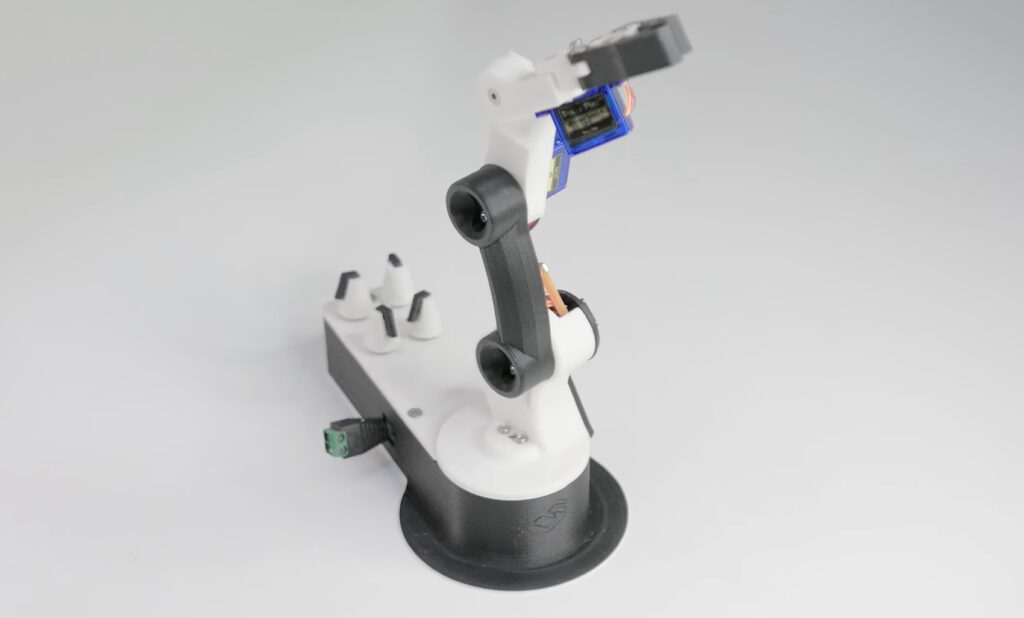
Robotics is already an intimidating field, thanks to the complexity involved. And the cost of parts, such as actuators, only increases that feeling of inaccessibility. But as FABRI Creator shows in their most recent video, you can build a useful robotic arm with just a handful of inexpensive components.
This is pint-sized robotic arm that has some of the same features as big and expensive industrial robots, just on a smaller scale. Users can operate the four joints manually, but can also record a series of positions and let the robot automatically move from one to the next. That is a popular programming technique in many industries, making this robot useful for learning real methodology and for performing practical tasks.
The best part is that this robot is very affordable. All of the parts, with the exception of fasteners and electronic components, are 3D-printable. The electronic components include an Arduino Nano board and four SG90 hobby servo motors that can be found for just a couple of dollars each. FABRI Creator designed a custom PCB to host the Arduino, to provide power input, and to simplify the wiring. That PCB isn’t strictly necessary, but it results in a much tidier robot.
The assembled robot is small, but has enough reach to be useful and enough strength to lift light objects. It is a perfect starting point for people who want to learn robotics basics on a budget.
The post This 3D-printed robotic arm can be built with just a few inexpensive components appeared first on Arduino Blog.